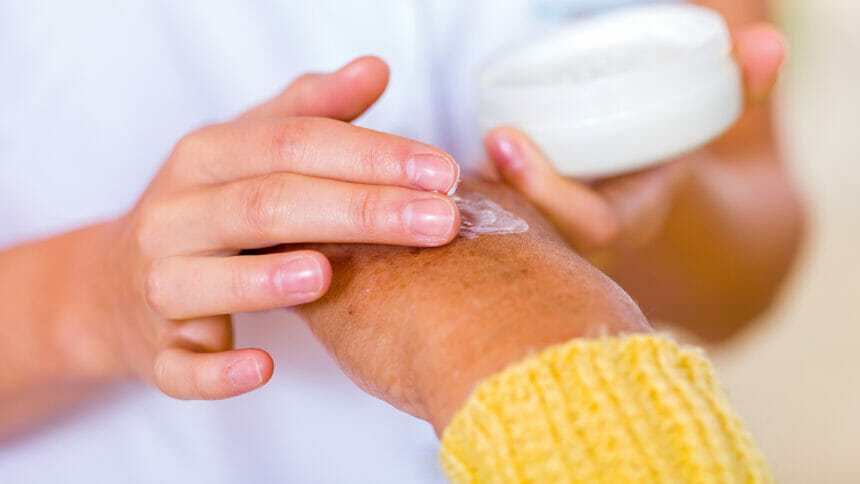
Companies dedicated to skin care have a long track record of innovating, but few things have ignited a greater sense of urgency than the staffing shortages plaguing so many long-term care providers.
A growing number of skin health and wound care firms are devoting considerable resources to provide short-staffed caregivers greater ease and confidence in addressing skin issues common in seniors.
“Our customers are really forced to do so much more with less. We know in the industry that preventative skin care has a major impact on skin care conditions,” said Cristina Alvarez of Medline’s Post-Acute Care Skin Health program. “However, in the past, there was never a specific standard as far as the right products to use, how often to use them, and how much product to use. As a result, many organizations today don’t have a comprehensive preventative skin care program.”
Training challenges are a major culprit.
“Research shows that many caregivers feel they don’t have the tools or training they need to provide proper skin and wound care,” Alvarez said, noting that customers are now open to tools that make it easier to assess, treat and monitor wounds.
Medline says its new advanced wound assessment and classification technology called “NE1” can help care for pressure injuries by providing simple written descriptors that guide caregivers to properly stage a pressure injury. Alvarez noted Medline recently revamped its decades-old Remedy Skin Care line as part of the company’s commitment to making skin care more intuitive for clinicians.
Meanwhile, skin care in the elderly continues attracting worldwide attention, according to Tony Forsberg, RN, BSBA, WCC, CSPHA, national clinical director for Essity HMS North America. The recently developed Skin Tear Risk Reduction Program Checklist covers actions to be taken for various categories of risk factors. A skin tear is a traumatic wound caused by mechanical forces, including removal of adhesives.
“Medical adhesives are a frequent source of skin trauma,” Forsberg explained. “Therefore, a recommendation to use silicone fixation or cohesive bandages is made.”
From the July/August 2023 Issue of McKnight's Long-Term Care News



